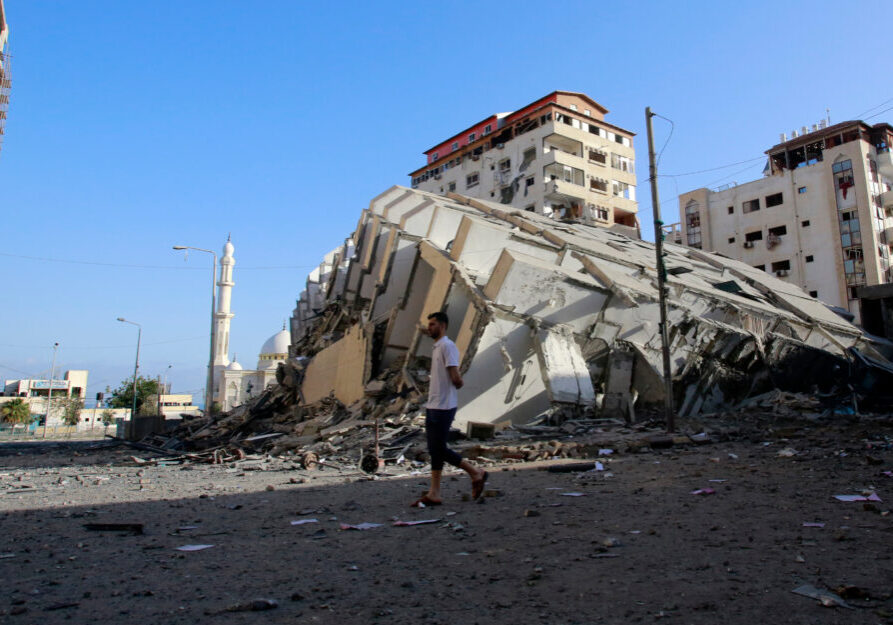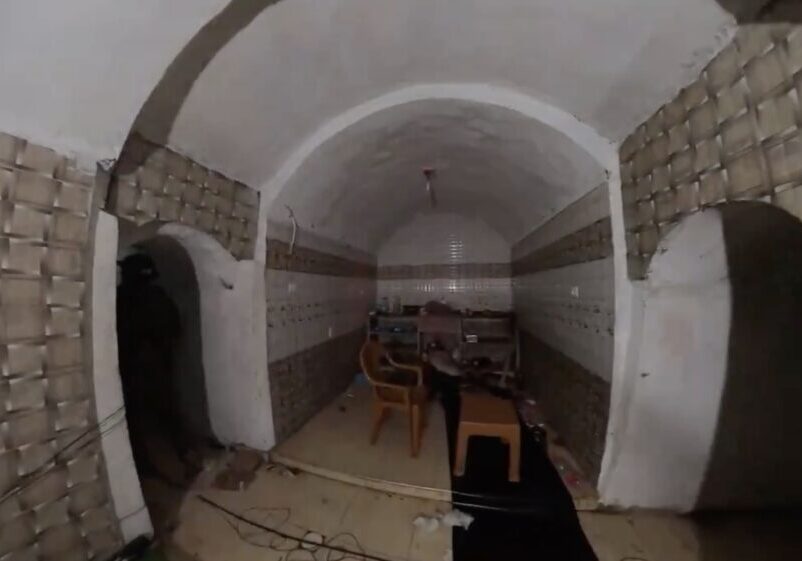Australia/Israel Review
Editorial: The Road to Damascus
Aug 30, 2011 | Colin Rubenstein
Colin Rubenstein
The Libyan regime is imploding, as rebels opposed to Muammar Gaddafi have now taken control of most of the Libyan capital. It is immensely inspiring to witness this triumph of the Libyan majority over a particularly ruthless, totalitarian and bloody dictator, achieved against great odds and at a terrible cost. As US President Barack Obama said in welcoming the news, “the future of Libya is in the hands of its people.”
However, that future remains unclear. It will be important over the next few months and years that the international community not view the departure of Gaddafi as the end game and do what it can to continue to support Libya in its transition to democracy, while preventing extremists from hijacking the people’s revolution.
The truth is the outside world has only limited insights into who the Libyan rebels actually are, but it is clear that they include both Islamists and liberals as well as traditional tribal elements, often disorganised and at odds with one another.
Nonetheless, there are also some hopeful signs for a future Libya. In a sign of flexibility and willingness to abandon old taboos, Libyan rebels have asked Israel for support, according to Haaretz, with the founder of Libya’s Democratic Party Ahmad Shabani suggesting recognition of Israel is a possibility. In addition, it is being reported that leaders of Libya’s exiled Jewish community, deported en masse in 1969, are being asked to help in the re-building process ahead.
News of Gaddafi’s political demise is not only a win for the Libyan people – it is inspirational for demonstrators in Syria endeavouring to dismantle the regime of the similarly brutal dictator Bashar al-Assad.
Assad has so far appeared confident that his regime will retain power. He knew that, in light of the protracted NATO involvement in Libya, Western governments were not interested in intervening in another Arab nation. With it appearing unlikely that anyone would stop him, Assad’s resolve to press ahead with a ruthless crackdown on the Syrian protesters could only have been strengthened – with over 2,200 Syrians killed so far and many thousands injured.
Indeed, there has been some talk among analysts of a Syrian/Libyan model for successfully suppressing the unrest associated with the Arab Spring, based on a callous willingness to use armed forces prepared to shoot down their own populace as much as necessary to retain power. Yet the fall of Gaddafi is a clear demonstration that even such bloodthirsty brutality is no guarantee of survival.
Their morale boosted by the Libyan example, the Syrian opposition will be more convinced than ever that ultimately, they can prevail. Meanwhile, doubts will likely start to creep into the minds of many of Assad’s loyalists. If the rebels are likely to win in the end, it makes sense to seek peace with them, even come over to their side, before it is too late. Finally, the Arab states, which have been reluctant to criticise or pressure the Assad regime despite the ongoing slaughter, in case the regime survived, will now be less hesitant to do so. All of this could well lead to a tipping point in Syria.
Certainly the struggle in Syria seems far from over. But two things should be very clear. One, the longer that this goes on, the more Syrian civilians will die, the more traumatised the country will be, and the greater the likelihood of this ethnically diverse country descending into a sectarian bloodbath. And secondly, if the regime of Bashar al-Assad manages to crush the revolt and cling to power, an immense strategic opportunity for the West, and for a more democratic and hopeful future for the entire Middle East region, will have been missed.
The case for regime change in Syria is even more compelling than in Libya. Not only is the Assad regime an egregious violator of human rights, its sponsorship of terrorism and central role in the regional rejectionist bloc, along with Iran and Hezbollah, make it a serious threat to Western strategic interests in a way that was no longer the case with the relatively contained Libya.
Iran is Assad’s closest ally and together they support Hezbollah and Hamas. Assad’s Ba’athist regime is dominated by the 12% Alawite minority, a Shi’ite sect, in a country where most are Sunni. Almost any alternative Syrian regime would most likely end or weaken Syria’s close ties to Shi’ite Iran and Hezbollah. Losing Syria – the rejectionist bloc’s key link into the heart of the Arab Middle East – would be a massive blow to both Iran and Hezbollah.
The hopes of Iran and its radical allies to dominate the future Middle East would be severely weakened. Their ability to sabotage and undermine a viable two-state Israeli-Palestinian peace outcome would be drastically reduced.
The protests in Syria are presenting the international community with an historic opportunity that must be seized. In 2009, Western nations watched millions of Iranians protest President Mahmoud Ahmadinejad’s disputed re-election and hoped they would succeed in replacing the unpopular, destabilising and human rights abusing Islamist Iranian regime before it acquired nuclear weapons. However, these hopes were not matched with supportive concrete action and following the Iranian regime’s brutal but effective crackdown, today the opposition “Green movement” is weak and struggling to survive, while Iran is still aggressively pursuing its nuclear ambitions.
Suppression of the yearning for positive change should not be allowed to succeed in Syria. Every reasonable policy option should be explored with the greatest urgency to ensure reformist regime change.
The Libyan uprising has been in many ways inspiring but its future remains very uncertain. However, a successful Syrian transformation would be of profound strategic consequence for the whole region.
Tags: Iran






